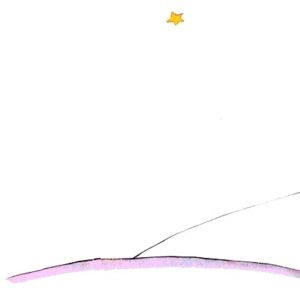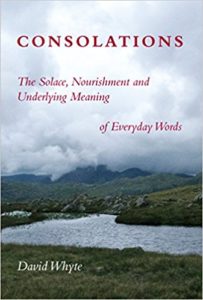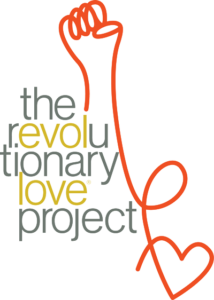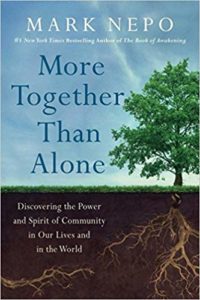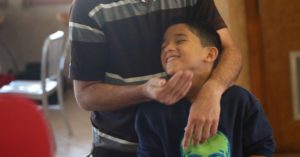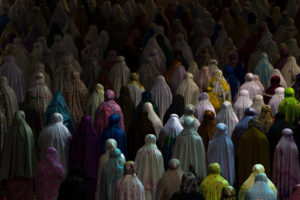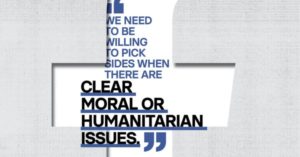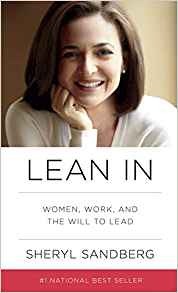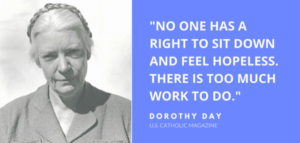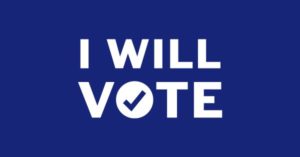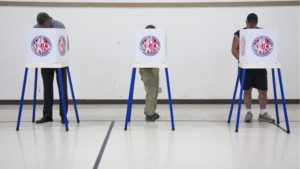One small correction.
July 30, 2018[Illustration from The Little Prince]
“We know, those people who know aeronautics, one small course correction, a minute course correction, over a period of time creates a dramatic change in outcome and destination.
Do something different in you life, no matter how small it is.
The biggest think you do in any day is often often going to be a small act of kindness, decency, or love.”
-Senator Cory Booker/onbeing.org
Revolutionary 
July 28, 2018
David Whyte
Heartbreak is unpreventable; the natural outcome of caring for people and things over which we have no control
Heartbreak begins the moment we are asked to let go but cannot, in other words, it colors and inhabits and magnifies each and every day; heartbreak is not a visitation, but a path that human beings follow through even the most average life. Heartbreak is an indication of our sincerity: in a love relationship, in a life’s work, in trying to learn a musical instrument, in the attempt to shape a better more generous self. Heartbreak is the beautifully helpless side of love and affection and is [an] essence and emblem of care… Heartbreak has its own way of inhabiting time and its own beautiful and trying patience in coming and going.
Maria Popova:
“Words belong to each other,” Virginia Woolf asserted in the only surviving recording of her voice. But words also belong to us, as much as we belong to them — and out of that mutual belonging arises our most fundamental understanding of the world, as well as the inescapable misunderstandings that bedevil the grand sensemaking experiment we call life.
David Whyte:
Heartbreak is how we mature; yet we use the word heartbreak as if it only occurs when things have gone wrong: an unrequited love, a shattered dream… But heartbreak may be the very essence of being human, of being on the journey from here to there, and of coming to care deeply for what we find along the way.
[…]
There is almost no path a human being can follow that does not lead to heartbreak.
Then, p. 113-115 in Consolations:
Hiding is a way of staying alive. Hiding is a way of holding ourselves until we are ready to come into the light. Hiding is one of the brilliant and virtuoso practices of almost every part of the natural world: the protective quiet of an icy northern landscape, the held bud of a future summer rose, the snowbound internal pulse of the hibernating bear. Hiding is underestimated. We are hidden by life in our mother’s womb until we grow and ready ourselves for our first appearance in the lighted world; to appear to early in that world is to find ourselves with the immediate necessity for outside intensive care.
Hiding is an act of freedom from the misunderstanding of others, especially in the enclosing world of oppressive secret government and private entities, attempting to name us, to anticipate us, to leave us with no place to hide and grow in ways unmanaged by a creeping necessity for absolution naming, absolute tracking and absolute control. Hiding is a bid for independence from others, from mistaken ideas we have about ourselves, from an oppressive and mistaken wish to keep us completely safe, completely ministered to,and therefor completely managed. Hiding is creative, necessary and beautifully submerse of outside interference and control. Hiding leaves life to itself Hiding is the radical independence necessary four our emergence into the light of a proper human future.
Parker Palmer
p. 161:
Suffering breaks our hearts, but the heart can break in two quite different ways. There’s the brittle heart that breaks into shards, shattering the one who suffers as it explodes, and sometimes taking others down when it’s thrown like a grenade at the ostensible source of its pain. Then there’s the supple heart, the one that breaks open, not apart, the one that can grow into great capacity for the many forms of love. Only the supple heart can hold suffering in a way that opens to new life.
p.39:
We both know that everyone has inner wisdom, and that one of the best ways to evoke it is in dialogue.
p. 161
Does a nation-state have a heart that can become supple enough to respond to collective suffering without violence?[…] I am not going to yield to cynicism. There are enough real-world facts and possibilities to justify hope.
p. 172
Pay attention to what’s right here, right now, and you’ll be rewarded immediately–the Beloved Community is in our midst.
pp. 117-188
Keep reaching out means saying to the world, “I’m still a member of this community. I have a voice and things I need to say, and I want to be part of the conversation.” Seeking Sanctuary is about finding the solace and support we need when our engagement with the rough-and-tumble world of politics starts to cost us our physical and mental well-being. I’m a Quaker. I stand in a religious tradition that asks me to live by such values as community, equality, simplicity, and nonviolence.
Recognize manipulations of
F
E
A
R
“Violence is what happens when we don’t know what to do with our suffering.” [Palmer]
Valarie Kaur is a civil rights activist whose personal lens is colored through feminism and inspired by the Sikh concept of the warrior-saint.
p. 157:
Valarie is redefining and reviving the great tradition of nonviolent action in terms that respond to what Martin Luther kIng Jr. called “The fierce urgency of now.”
Quoting Thomas Merton:
“Loving God is a piece of cake compared to loving another human being. Being human is harder than being holy.”
Revolutionary Love
Declaration of Revolutionary Love:
We declare love even for our opponents. We vow to oppose all executive orders and policies that threaten the rights and dignity of any person. We call upon our elected officials to join us, and we are prepared to engage in moral resistance throughout this administration. We will fight not with violence or vitriol, but by challenging the cultures and institutions that promote hate. In so doing, we will challenge our opponents through the ethic of love.
Thich Nhat Hanh
Enlightenment for a wave is the moment the wave realizes that it is water. At that moment, all fear of death disappears.
Profoundly, grace comes to the wave when it realizes what it is made of. Since it has risen from the very same water into which it will crash its fear of ending is somehow lessened. For it is already a part of where it is going. Can it be that you and I, like simple waves experience such an enlightenment the instant we realize that we are all made of the same water? […] I think now that the other way to read all t his is to say that enlightenment is the moment we realize that we are made of love. At that moment, all fear of living disappears. For grace comes to the heart when it realizes what it is made of and what it has risen from.
-Mark Nepo, The Book Of Awakening
“The ‘Go away’ tribe believes that human beings by nature are self-serving and untrustworthy, in need of control. The ‘Go away’ tribe believes in stringent laws and constraints, both moral and legal, to ensure that people don’t run amok. The ‘Come, teach me’ tribe believes that human beings by nature are kind and trustworthy. The ‘Come, teach’ tribe believes in cultivating laws that empower freedom, to ensure that people actualize their gifts through relationship.
While Mark was a perceptive diagnostician of the modern world, offering insights into the human cost of industrialization. Marx foresaw that capitalism and industrialization break people from their true nature. In time, the modern world alienates from our true selves, which leads to fear and the strident calls of the “Go away’ tribe. Regardless of the type of government we support, there is always the need to repair that brokenness and to restore us to our true nature–from which we rediscover, one more time, that we are more together than alone.”
What we see across the devoid is us. We have created the systems we suffer under.”
Walter Starke
I realized that the spiritualization of our nation’s corporations is the most important development that can possibly happen for the spiritual growth of the the world as a whole.
Hannah Arendt
“She wrote in her 1951 Origins of Totalitarianism, going on to elaborate that this “mixture of gullibility and cynicism… is prevalent in all ranks of totalitarian movements”:
In an ever-changing, incomprehensible world the masses had reached the point where they would, at the same time, believe everything and nothing, think that everything was possible and nothing was true… The totalitarian mass leaders based their propaganda on the correct psychological assumption that, under such conditions, one could make people believe the most fantastic statements one day, and trust that if the next day they were given irrefutable proof of their falsehood, they would take refuge in cynicism; instead of deserting the leaders who had lied to them, they would protest that they had known all along that the statement was a lie and would admire the leaders for their superior tactical cleverness.
“The great analysts of truth and language in politics”—writes McGill University political philosophy professor Jacob T. Levy—including “George Orwell, Hannah Arendt, Vaclav Havel—can help us recognize this kind of lie for what it is…. Saying something obviously untrue, and making your subordinates repeat it with a straight face in their own voice, is a particularly startling display of power over them. It’s something that was endemic to totalitarianism.”
Arendt and others recognized, writes Levy, that “being made to repeat an obvious lie makes it clear that you’re powerless.” She also recognized the function of an avalanche of lies to render a populace powerless to resist, the phenomenon we now refer to as “gaslighting”:
The result of a consistent and total substitution of lies for factual truth is not that the lie will now be accepted as truth and truth be defamed as a lie, but that the sense by which we take our bearings in the real world—and the category of truth versus falsehood is among the mental means to this end—is being destroyed.
Arendt’s analysis of propaganda and the function of lies seems particularly relevant at this moment. The kinds of blatant lies she wrote of might become so commonplace as to become banal. We might begin to think they are an irrelevant sideshow. This, she suggests, would be a mistake.
Open Culture, Michiko Kakutani
This is what makes America great.
An informal welcoming committee is offering support — with everything from plane tickets to birthday cupcakes. […] The staff and volunteers at Lutheran Social Services (with help from national advocacy groups like the American Civil Liberties Union and FWD.us) are ready, with everything from shoelaces to stuffed animals to pastors on call. Meanwhile, in Washington, DC — where it’s 10 or 11 at night — staffers for FWD.us are preparing to spend another few hours as impromptu travel agents, booking next-day flights from Phoenix to wherever the families are set to go.
The welcoming committee is trying to ensure that families make their initial check-in dates, something they feel the government should be helping with but isn’t. But they’re also trying to show another face of America to the victims of the family separation policy. “The American public is going to step in where the government has failed,” said Alida Garcia, the coalitions and policy director for FWD.us, on a press call Tuesday. “It’s going to provide comfort and love and care to these families.”
VOX/Dara Lind
https://www.vox.com/2018/7/26/17608480/separated-parents-children-deadline-together-help
https://vimeo.com/108183414
FWD.us chapters are the central home for everything that we do—building networks, innovating advocacy, and sharing stories. We bring together passionate, talented people, and offer opportunities to engage in innovative advocacy that educates elected decision makers and changes the terms of public debate.
FWD.us is mobilizing the tech community to promote policies that keep the U.S.
competitive in a global economy, starting with fixing our broken immigration system and criminal justice reform.
W. Somerset Maugham
“(She) is without ambition and (she) has no desire for fame; to become anything of a public figure would be deeply distasteful to (her); and so it may be that (she) is satisfied to lead (her) chosen life and be no more than just (herself). (She) is too modest to set (herself) up as an example to others; but it may be (she) thinks that a few uncertain souls, drawn to (her) like moths to a candle will be brought in time to share (her) own glowing belief that ultimate satisfaction can only be found in the life of the spirit, and that by (herself) following with selflessness and renunciation the path of perfection (she) will serve as well as if (she) wrote books or addressed multitudes.”
Leos of love.
(Well, yeah. Except #9…if you cross us. Then we release…and always in  .)
.)
9 Reasons to Appreciate the Leos in Your Life:
2. Leos are so incredibly generous — with their hearts, their praise, their affection, their time, their attention, just generous— because it makes them genuinely happy. If you’ve got a Leo in your life, you know they love to make you feel special and appreciated. They have some of the biggest hearts in the zodiac and they love in ALL CAPS.
3. They will gas you up, because they’re supportive as hell and live for boosting the people they love. Leos will brag for you. They may have a reputation for needing to be the center of attention, but they want their loved ones to shine bright, too — and they are so stoked when their people achieve and grow.
4. You always know where you stand with a Leo. They don’t have time for games or bull#*&%. One of Leo’s most underrated qualities is their strong sense of integrity. They loathe liars, cheaters, and fakes — and would never want to be any of the above — and you won’t catch them being shady.
5. And you don’t have to worry about them flaking or backing down on their word. Leos come through for you. What you see is what you get with a Leo, and if they care about you, they won’t let you down.
7. And they will stand up for you when you need someone in your corner. Listen, a Leo is protective as fuck and is looking after you whether you like it or not. They’re a lion and they will treat you like their cub if need be. And tbh, people who make you feel safe are people to hold onto.
8. They’re positive and optimistic, which let’s be real, is a presence everyone needs right now. Like, they are sun in the shape of a human. They’re warm and uplifting — traits we need to wrap around ourselves like a protective blanket given *gestures at the world* everything.
9. In a Leo, you have a friend or partner for life. Long-lasting, emotional partnerships are a top priority for Leo. They will show up for you, invest in you, and — if you match their loyalty — pour their huge-ass hearts into you.
-BuzzFeed, Anna Borges
Climate Change Linked to Suicide Increase
July 27, 2018New research from Stanford University finds that higher temperatures are leading to more suicides. And by 2050, the study predicts, thousands of additional suicides will have occurred in North America alone due to the rising temperatures caused by climate change.
Published in the journal Nature Climate Change, the study examined decades of county-level suicide data — nearly 1.5 million observations spanning all of the United States and Mexico — as well as data that tracked monthly temperatures in each area. The team used data going back as far as 1968.
According to the research, a monthly rise in temperature of 1 degree Celsius leads to “about a 1 to 2 percent increase in the suicide rate,” says Dr. Marshall Burke, assistant professor of earth system science at Stanford University and lead author of the study.
Burke says there is “emerging physiological evidence” that the parts of the brain involved with regulating emotion are also used when dealing with heat. While “there is a plausible link here,” he says, the mechanism linking heat to suicide remains an open question.
“We need a movement in this country, more than anywhere, that makes it unacceptable for political leaders to […] not meet their climate obligations, or to deny that climate change is even a real thing,” he says.
-WBUR, Justin Kaplan
Full article: http://www.wbur.org/commonhealth/2018/07/23/global-warming-deaths-by-suicide
Power Path
On Friday, July 27, the full moon will pass through the shadow of the Earth for 103 minutes. It will be the longest “blood moon” lunar eclipse of the century, as the moon turns red in the shadow of the Earth for nearly two hours.
This is a rather intense full moon, (some of you have been feeling it for days already), that creates a window to speak your truth, embrace your personal power, and step up to a new level of integrity, maturity and confidence It is a perfect time for a bid for Power. What do you really and truly want that you either feel you don’t deserve, you don’t have the skills or time to create, or you simply don’t believe it could happen? Face your doubts, fears and anxieties, and ask for help and support for your bigger dreams.
This is a great time for transformation, expansion and clearing of some very deep old emotional insecurities and wounding. It is a good sign if you feel slightly unbalanced, emotional and vulnerable. Great healing is possible and forgiveness is a key.
It is a good time also to revisit the details of your physical environment and to put some energy into what will support you better. Take a look with fresh eyes at what you have been putting up with and make some decisions to improve your surroundings. Be proactive with this time and beware of falling into judgment, negativity, lethargy and despair. If it happens, focus on something that inspires you, that makes you happy and feel good.
-Power Path ☆
Creating God.
July 25, 2018‘Let’s take a moment to go back in time.
For most of human history, we lived in small groups of about 50 people. Everyone knew everybody. If you told a lie, stole someone’s dinner, or failed to defend the group against its enemies, there was no way to disappear into the crowd. Everyone knew you, and you would get punished.
But in the last 12,000 years or so, human groups began to expand. It became more difficult to identify and punish the cheaters and free riders. So we needed something big — really big. An epic force that could see what everyone was doing, and enforce the rules. That force, according to social psychologist Asim Shariff, was the popular idea of a “supernatural punisher” – also known as God.
Think of the vengeful deity of the Hebrew Bible, known for sending punishments like rains of burning sulfur and clouds of locusts, look and lice.
“It’s an effective stick to deter people from immoral behavior,” says Shariff.
For Shariff and other researchers who study religion through the lens of evolution, religion can be seen as a cultural innovation, similar to fire, tools or agriculture. He says the vibrant panoply of religious rituals and beliefs we see today – including the popular belief in a punishing God – emerged in different societies at different times as mechanisms to help us survive as a species.
This week on Hidden Brain, we explore a provocative idea about the origin, and purpose, of the world’s religions.’
-The Hidden Brain/NPR
The political is spiritual.
Ron Howard
“Keep encouraging friends and co-workers to register and vote. We need to remind the world, the politicians and ourselves that this democracy is supported by its citizens. Big turnout please. Both parties! Massive Turnout”
Pick a side.
July 24, 2018The note, titled “A Difficult Week,” came six days after stories in the New York Times and the Observer revealed how political consulting firm Cambridge Analytica had obtained and exploited the data of millions of Facebook users for political advertising purposes. After those revelations, Stamos, who had reportedly previously clashed with other executives over Facebook’s handling of Russian state-sponsored misinformation and election interference on the platform, confirmed his plans to leave by August. According to the post, his departure had long been in the works following an internal reorganization that left him with fewer responsibilities, and it was not directly related to the Cambridge Analytica scandal.
“We need to listen to people (including internally) when they tell us a feature is creepy or point out a negative impact we are having in the world,” the note continued. “We need to deprioritize short-term growth and revenue and to explain to Wall Street why that is ok. We need to be willing to pick sides when there are clear moral or humanitarian issues. And we need to be open, honest and transparent about our challenges and what we are doing to fix them.”
“I was the Chief Security Officer during the 2016 election season, and I deserve as much blame (or more) as any other exec at the company,” Stamos wrote, hoping to dispel the notion that he was some type of “hero” standing up to CEO Mark Zuckerberg or Chief Operating Officer Sheryl Sandberg. In a story about his departure, the Times reported that Stamos had favored more disclosure around Russian disinformation campaigns and organizational changes to allow for heavier policing of the platform — ideas that were met with resistance from other Facebook executives. Stamos later disputed that narrative on Twitter. -Buzzfeed
SIDEBAR:
Sitting on fb’s board of directors is Silicon Valley billionaire is Peter Thiel who wrote in 2009 that women getting the vote was bad for democracy. He sits next to fb CEO Sheryl Sandberg who encouraged young women to “Lean In”, and the ways women ‘hold ourselves back.’ Perhaps refraining from hiring misogynists would help women ‘achieve their goals.’ https://www.huffingtonpost.com/…/peter-thiel-women…
[photo: SV Allen & Co Conference]
Full list of fb administers and board:
Orwellian speak.
“Just remember, what you’re seeing and what you’re reading is not what’s happening.”
-DT, 2018
“The party told you to reject the evidence of your eyes and ears. It was their final, most essential command.”
-George Orwell, ‘1984’
Perseid Meteor Shower 2018 ☆
Dorothy.
July 23, 2018“Resistance becomes duty.”
July 22, 2018Plutotic oligarchy organized as a republic…only democratic in theory if the people vote…and they typically don’t. In 2016? Turnout was the lowest in two decades…55.7% voted…48% (Hillary) To 46% (DT). The Electoral College, 538 members, elected the 45th president, a majority of 270 votes, in December of 2016.
DT received 304 electoral votes, Clinton, 227, while Colin Powell won 3 and John Kasich, Ron Paul, Bernie Sanders, and Faith Spotted Eagle each received 1.
So, in essence 304 people elected our current president.
#AbolishElectoralCollege
“When injustice becomes law, resistance becomes duty.” -Thomas Jefferson
The Moral Basics of Democracy, by Eleanor Roosevelt
With the threat of the Third Reich looming, Eleanor Roosevelt employs the history of human rights to establish the idea that at the core of democracy is a spiritual responsibility to other citizens. Roosevelt then calls on all Americans, especially the youth, to prioritize the well-being of others and have faith that their fellow citizens will protect them in return. She defines this trust between people as a trait of true democracy.
Roosevelt advances an optimistic model for the democracy of the future, and although we’ve taken some steps in the direction of her vision, it’s still a long way from reality. The issues first addressed in this 1940 essay—namely financial inequality and racial discrimination—are sadly still relevant today, as bigotry continues to undermine our national unity.
Her first publication as first lady, The Moral Basis of Democracy is an honest and heartfelt call for all Americans to choose love and faith over hatred and fear. Roosevelt takes an inspiring stance in defense of democracy, progress, and morality; the wisdom imparted here is timeless, and a must-read for every American.
“Dear God, Please bless our country at this difficult time. Protect and bless our democracy, Deliver us to a better place, And guide us to the Light That will lead us through this storm.”
Amen
-Marianne Williamson
“Remember, democracy never lasts long. It soon wastes, exhausts, and murders itself. There never was a democracy yet that did not commit suicide.”
-Will Rogers
“Democracy is threatened whenever we take it for granted.”
-President Barack Obama
‘Everybody wondered why…’
Richard Rohr, Center for Action and Contemplation
More than a theological statement that requires intellectual assent, the Eucharist is an invitation to socially experience the shared presence of God, and to be present in an embodied way. Remember, within a Trinitarian worldview, everything comes down to relationship.
First, let me share some context. In Jesus’ time, the dominant institution was the kinship system: the family, the private home. That’s why early Christians gathered in house churches, much different from the typical parish today. In Matthew’s Gospel the word house is used many times. Jesus is always going in and out of houses (as in 8:14, 9:10). What happened around the tables in those houses shaped and named the social order. Table friendship ends up defining how we see friendship in general.
Jesus often used domestic settings to rearrange the social order. Nowhere was that truer than with the meal—with whom, where, and what he ate. This is still true today, more than we might imagine. (Another example of Jesus changing the social order is in the relationship between employers and workers.) Jesus’ constant use of table relationships is perhaps his most central re-ritualization of what family means. Note that he is always trying to broaden the circle (see Luke 14:7-24 for three good examples). Jesus brought this all to fullness in his “last supper” with “the twelve.” This was not to emphasize male fellowship, but the full quorum of the twelve tribes of Israel. (I know it does not look that way to us now, but the Eucharistic meal was from the very beginning a gathering of both women and men, which shows how Christians understood equality.)
Jesus didn’t want his community to have a social ethic; he wanted it to be a social ethic. Their very way of eating and organizing themselves was to be an affront to the system of dominance and power. They were to live in a new symbolic universe, especially symbolized by what we now call open table fellowship.
In all cultures, sharing food is a complex interaction that symbolizes social relationships and defines social boundaries almost more than any other daily event. Whom you eat with defines whom you don’t eat with. Certain groups of people eat certain kinds of food. Through our choices and behavior at table, we name and identify ourselves.
This might seem like an unfair example to some, but today a vegetarian (or even vegan) diet has become a conscious choice for many because they’ve studied the politics of food: who eats meat and who can’t eat meat; what eating meat is doing not only to our health but even to the planet. Researchers surmise that the meat-heavy Western diet contributes to one-fifth of global emissions on our planet. Zen master Thich Nhat Hanh writes:
As a spiritual family and a human family, we can all help avert climate change with the practice of mindful eating. Going vegetarian may be the most effective way to stop climate change.
Jesus already showed us in practice and in ritual that the spiritual, social, political, and economic move together as one. In fact, that is what makes something “spiritual”—that is whole, combining sacred and secular, matter and spirit.
*Thich Nhat Hanh, “Blue Cliff Letter,” 2007, https://plumvillage.org/letters-from-thay/sitting-in-the-autumn-breeze/.
*Adapted from Richard Rohr with John Bookser Feister, Jesus’ Plan for a New World: The Sermon on the Mount (St. Anthony Messenger Press: 1996), 67-68, 77-79.
♥
July 18, 2018#PaperBallots2018
July 17, 2018Top Voting Machine Vendor Admits It Installed Remote-Access Software on Systems Sold to States
Remote-access software and modems on election equipment ‘is the worst decision for security short of leaving ballot boxes on a Moscow street corner.’
“The company’s machines were used statewide in a number of states, and at least 60 percent of ballots cast in the US in 2006 were tabulated on ES&S election-management systems. It’s not clear why ES&S would have only installed the software on the systems of “a small number of customers” and not all customers, unless other customers objected or had state laws preventing this.
Election-management systems are not the voting terminals that voters use to cast their ballots, but are just as critical: they sit in county election offices and contain software that in some counties is used to program all the voting machines used in the county; the systems also tabulate final results aggregated from voting machines.”
Full article by Kim Zetter:
Boston Globe, Feb. 19th, 2018
WASHINGTON — Hoping to counter waves of Russian Twitter bots, fake social media accounts, and hacking attacks aimed at undermining American democracy, state election officials around the country are seizing on an old-school strategy: paper ballots.
In Virginia, election officials have gone back to a paper ballot system, as a way to prevent any foreign interference. Pennsylvania Governor Tom Wolfe this month ordered county officials to ensure new election equipment produces a paper record. Georgia lawmakers are considering legislation to replace a touch-screen voting system with paper.
Top election officials around the country are growing increasingly alarmed about this fall’s midterm elections, with a drumbeat of dire warning signs that Russia is determined to influence them. And many are concerned that President Trump has not focused on the potential for more attacks on America’s election system like the one Russia launched in 2016.
With little leadership from the White House or Congress, they are acting locally, trying to outwit potential hackers by upgrading equipment and enhancing the cybersecurity of systems that contain sensitive voter registration rolls. Secretaries of state and other elections officials around the country in recent months also began applying for security clearances so that federal officials can start briefing them on classified information — and potential threats to election integrity.
Election officials are also turning away from fully electronic systems they fear can be hacked. They see paper as reassuring for voters: Physical ballots can be counted again if anything untoward happens to computerized tabulating systems.
About 30 states allow some form of electronic voting, most for overseas absentee voters. A handful prohibit full electronic voting, including Massachusetts, according to data compiled by the National Conference of State Legislatures.
“I’ve always been in favor of paper ballots, even when it was fashionable to use electronic systems,” said Massachusetts Secretary of State William Galvin. “You take the card, you mark your choices, you take it to the box. You ensure it’s counted. All the cards are retained. If there’s a question you can go in and count the cards.”
Over the past several weeks, the nation’s top intelligence officials have said that Russians are already at work trying to disrupt the midterm elections, building on their efforts in 2016. In some cases, they are attempting to spread misinformation using social media platforms, while in others they are targeting the American election infrastructure.
“Our democracy is under attack,” Jeh Johnson, the former head of the Department of Homeland Security, said in an interview. “I believe that the cyber threat to our nation is going to get worse before it gets better. Those on offense, which include nation states, are increasingly tenacious. And those of us on defense struggle to keep up.
“I believe we have yet to learn the full extent of the Russian influence campaign in 2016,” he added. “And they’ve been given little disincentive to do anything different in 2018.”
The risks came into sharp relief on Friday with a detailed indictment of 13 Russian nationals and three Russian organizations that allegedly worked to help Trump win the 2016 presidential election. They posed as Americans, stole identities, and sowed political discord by planning rallies, paying for political advertisements, and engaging in social media activity.
The indictment alleges that the conspiracy began in 2014 and had a monthly budget of $1.25 million, with the aim of conducting “information warfare against the United States.”
Jeanette Manfra, chief cybersecurity official for the Department of Homeland Security, has also stated that Russian hackers targeted 21 states’ election systems before the 2016 presidential election, breaching a small number of them. She noted that there was no evidence any votes were changed.
While states have been trying to upgrade election infrastructure to prevent such problems as hacking, there is an ongoing debate over how to counter misinformation campaigns.
“We have to be careful about injecting the security apparatus of our government into regulating speech,” Johnson said. “Other governments do that. In this country we have to be careful about calling that a national security matter. Governments like ours do not regulate speech, particularly political speech.”
Instead, he said, it may be up to such service providers as Facebook and Twitter to do more to regulate access to their networks.
Galvin, the Massachusetts secretary of state, says the misinformation is a problem for all election officials — but it’s also something a bit out of their control.
“Are people questioning? Yes. Is the questioning a concern of people like me? Yes. Because it makes it much more difficult for people like me to say, ‘Come out and vote, your vote will count,’” he said.
State officials say the last several months have involved a flurry of activity to prepare for threats.
“At the state level we’re doing everything we can. All the states, red states or blue states, are diligent and focused about trying to protect their systems,” said Vermont Secretary of State James Condos, a Democrat who is the incoming president of the National Association of Secretaries of State. “But it goes back to the top. If the president is not willing to help us, then we’ve got to fend for ourselves.”
The concern, largely, is of the unknown: that foreign hackers are quicker to discover the holes in American cybersecurity than US officials are at plugging them.
“As I say to others, we’re only as good as today is,” Condos said. “The bad actors are constantly evolving, they’re constantly changing. They’re looking for different ways to get in. We’re trying to stay ahead of them, or at least even with them.”
Election experts say the aim of Russia or other foreign forces during the midterm elections is probably not to help one candidate win or to help Republicans maintain control of the House or Senate. Instead, they say, the effort seems driven more toward simply sowing doubt among Americans about the validity of our voting system.
“It is high risk and questionable reward to actually try and change an outcome of an election in the US,” said David Becker, founder and executive director the Center for Election Innovation and Research. “What you can do is a low-risk, high-reward proposition — which is what the Kremlin has been doing — which is be open about your intent to mess with our elections, be discovered, and then let the American people sow their own doubt about their system.
“This is really about whether the voters have trust in our method of choosing our leaders, which is essential for our democracy,’’ he said. “Russia has been absolutely essential in diminishing that trust.”
President Trump has downplayed Russian meddling in the 2016 elections. Congress last year overwhelmingly passed a sanctions package to punish Russia for meddling, but the Trump administration announced last month that it would not implement those sanctions.
“It is a dereliction of duty that the president has not taken steps to punish Russia for its 2016 actions,” said Liz Kennedy, senior director of Democracy and Government Reform at the left-leaning Center for American Progress and the co-author of a recent report examining election security in all 50 states. “Clearly not imposing the sanctions that Congress ordered . . . is exactly the wrong signal to send to Russia.’’
While election experts have been generally pleased with the amount of work that state election officials have been doing to improve their systems, there is still a wide degree of concern that states are not getting enough help from Washington.
“I really see this as our current Sputnik moment,” Kennedy said. “If they have these tools they’ve developed, we need to outsmart them and develop better tools. . . . Time is short. It needs to be a real priority.”
Matt Viser can be reached at matt.viser@globe.com. Follow him on Twitter @mviser.
“…feminine, cooperative and supportive.”
The shift to a more sustainable political policy will involve:
. . . a shift of emphasis away from means towards ends; away from economic growth towards human development; away from quantitative towards qualitative values and goals; away from the impersonal and organisational towards the personal and interpersonal; and away from the earning and spending of money towards the meeting of real human needs and aspirations. A culture that has been masculine, aggressive and domineering in its outlook will give place to one which is more feminine, cooperative and supportive. A culture that has exalted the uniformly European will give place to one which values the multi-cultural richness and diversity of human experience. An anthropocentric worldview that has licensed the human species to exploit the rest of nature as if from above and outside it, will give place to an ecological worldview. We shall recognize that survival and self-realisation alike require us to act as what we really are—integral parts of an ecosystem much larger, more complex, and more powerful than ourselves.
James Robertson, Beyond the Dependency Culture: People, Power and Responsibility, as cited by Richard Rohr and The Center for Action and Contemplation.
We cannot expect to draw a pattern of this right seeing from he objective world of confusion or our inner thoughts of doubt and fear. We are to look and think independently of the confusion in the moment. I am seeing through confusion to peace, through doubt to certainty, through fear to faith. As I do this everything I look upon shall become transformed and reborn. -Ernest Holmes
Terrible things are hard enough to experience the first time. Beyond their second and third and fourth experience as trauma, ,their impact can easily makes u become terrible if we do not keep our want to love alive. Perhaps the most difficult challenge of being wounded is not turning our deepest loving nature over to the lie and way of the wound. The human heart–no matter how often it is cut–can reassert its impulse to love. -Mark Nepo
Also from Mark:
I see that we’re such fragile, resilient creatures, here for just a long unplanned moment, tumbling and waking in this beautiful, harsh tender existence.
Dialogue is a matter of understanding, of peeling away the mind to stand under (our thoughts) in Oneness.
Tyranny & Treason
July 16, 2018Richard Rohr:
We believe our elected officials are called to public service, not public tyranny, so we must protect the limits, checks, and balances of democracy and encourage humility and civility on the part of elected officials.
We reject any moves toward autocratic political leadership and authoritarian rule. . . . Disrespect for the rule of law, not recognizing the equal importance of our three branches of government, and replacing civility with dehumanizing hostility toward opponents are of great concern to us. Neglecting the ethic of public service and accountability, in favor of personal recognition and gain often characterized by offensive arrogance, are not just political issues for us. They raise deeper concerns about political idolatry, accompanied by false and unconstitutional notions of authority.
___
DT, next to Putin, refused to say whether he believed US intelligence or Russia on 2016 elections.’ [NYTimes]
Treason: The offense of assisting its enemies, or, adhering to, or giving aid & comfort to its enemies by one who owes it allegiance.
Congress, your move.
___
The Atlantic:
The Crisis Facing America, by David Frum
The country can no longer afford to wait to ascertain why President Trump has subordinated himself to Putin—it must deal with the fact that he has. […] At the 1787 convention in Philadelphia, the authors of the Constitution worried a great deal about foreign potentates corrupting the American presidency.
America is a very legalistic society, in which public discussion often deteriorates into lawyers arguing whether any statutes have been violated. But confronting the country in the wake of Helsinki is this question: Can it afford to wait to ascertain why Trump has subordinated himself to Putin after the president has so abjectly demonstrated that he has subordinated himself? Robert Mueller is leading a legal process. The United States faces a national-security emergency.
https://www.theatlantic.com/international/archive/2018/07/trump-putin/565310/
